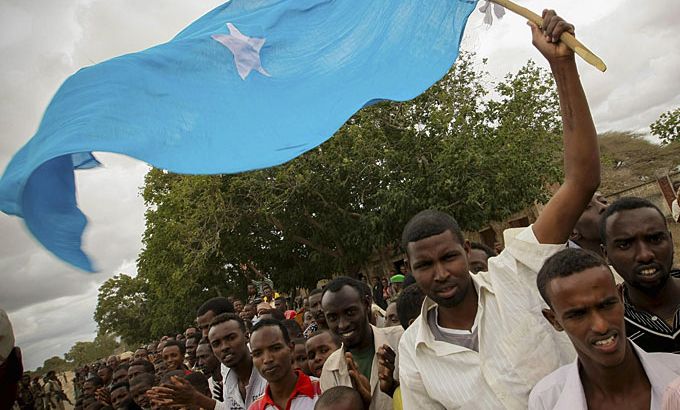
Is Somalia ready for real democracy?
As the country gears up for a new government we ask if it will be able to overcome corruption and internal conflicts.
After a week-long debate Somalia’s National Constituent Assembly has endorsed a new constitution, marking an end to a series of transitional administrations over the past 20 years.
A new parliament is to be elected by the country’s traditional elders, and that body will then choose a president and elect a government.
|
“It is important that the elders be given an independent rein to select the members of parliament. In a similar process in Kenya in 2004 we saw a great deal of gerrymandering by the international community and I pray that that is not going to happen in this case.“ – Abdulkareem Jama, a former information minister |
The hope is that the constitution will provide individual rights that have been largely non-existent, and that it will provide the framework for a strong and representative government.
But many are doubtful that these aims can be achieved in a divided state marked by violence and instability.
Despite the approval of the provisional constitution, the country still faces many challenges.
Last month a leaked UN report said key leaders at the very top of the transitional government were in corruption.
This has boosted the cause of al-Qaeda and al-Shabab in Somalia, seen as a serious threat to peace not only in the country but the region as a whole.
All this while Somalia has relied heavily on foreign aid and has been battling poverty.
|
“Security is one of the benchmarks in the roadmap…one of the pillars was to work on security and the other was to complete on the constitution-making process…[and] security institutions must have a legal foundation that’s why we need a constitution.“ – Abdurahman Hosh Jibril, Somalia’s minister of constitution affairs |
Augustine Mahiga, the UN’s top representative to Somalia, says there is still a lot of work to do.
“The next step is to form a new parliament. Today’s step [the provisional constitution] was a major step in the Somali peace process because it completed one of the major steps in the ending of the transition, that is the adoption of a provisional constitution.
“The same elders who selected the delegates today [for the] National Constituent Assembly, will proceed to select the members for a new parliament. This should happen early next week and that parliament will elect the president, the speaker and the deputy speaker on August 20.”
In this episode Inside Story asks: Will the provisional constitution help deliver peace to a country ravaged by more than two decades of civil war? Is Somalia ready for real democracy?
Joining the discussion with presenter Mike Hanna are guests: Muhdin Mohammed Ali, the founder and director of Somali Policy, a political think tank; Abdulkareem Jama, a former information minister and also the secretary-general of Daljir Forum, a group that aims to foster rigorous debate on Somalia’s future; and Abdurahman Hosh Jibril, the minister of constitution affairs and reconciliation of Somalia’s transitional government.
|
“This constitution will prove a very difficult point in the coming few years because majority of Somalis were not born when the previous [post-colonial] constitution was written…First of all we have to educate people to understand what it is for and what it will do for the country.” Muhdin Mohammed Ali, the founder and director of Somali Policy |
SOMALIA IN TRANSITION:
- The mandate of the transitional government ends on August 20.
- Among other things, the new constitution uses Islamic law as the legal foundation, it enshrines ideas of development and bans female circumcision or genital mutilation.
- The last nationally-approved constitution was in 1960.
- There has been no functioning central government since 1991.
- Much of the country is controlled by the al-Qaeda-affiliated al-Shabab group.